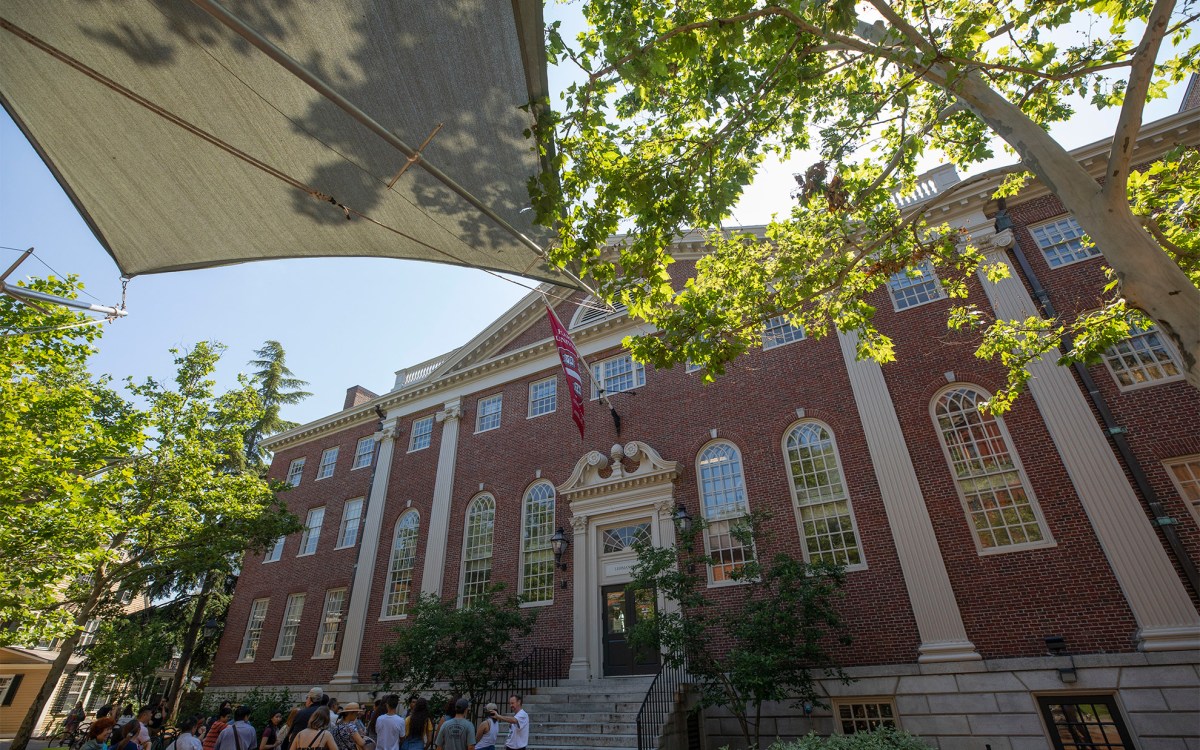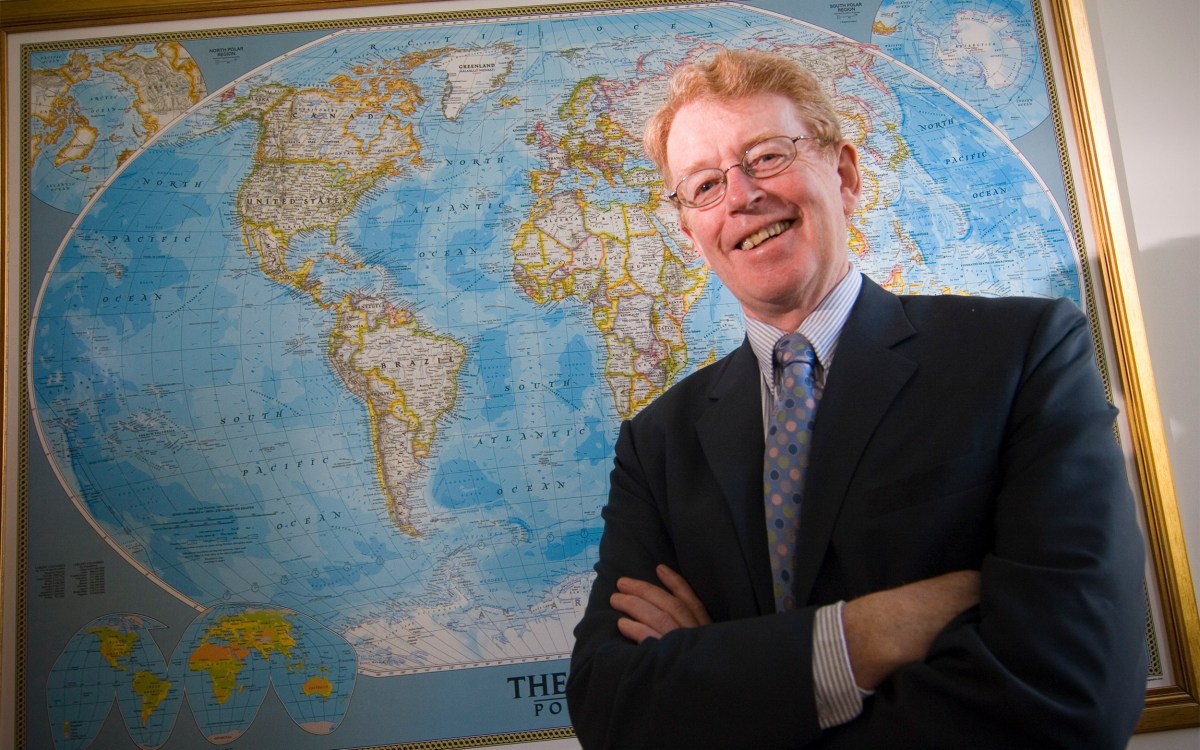Learning about early learning
Mind in the Making makes its New England debut at Harvard
On a recent cold Monday morning, the Gutman Conference Center looked more like a kindergarten classroom than a high-end meeting facility. Construction paper, glue sticks, scissors, colored pencils, and crayons covered most of the room’s six round tables. And working at those tables was not a group of intent 5-year-olds but 33 adults busily crafting their creations.
They were participating in Mind in the Making (MITM), a program that teaches the science of early learning to families, teachers, and others. Created by the nonprofit Families and Work Institute in the late 1990s, MITM builds on research conducted by scientists across a wide range of fields including neurobiology, education, and psychology. The Massachusetts incarnation of MITM is the result of a joint effort between Harvard University and United Way of Massachusetts Bay.
During a three-day session in March and a second three-day session in April, the group filled the Gutman Conference Center at the Harvard Graduate School of Education. While MITM is not new, the program has recently been initiated in New Mexico, Florida, and Pennsylvania; this is the first in Massachusetts and the first in New England.
The inaugural class consisted of teachers, child-care providers, psychologists, and a smattering of others in child-centered professions.
“The purpose of MITM is to bring research on early learning to many different audiences and to show the research in action,” said Ellen Galinsky, an author of MITM and president of the Families Work Life Institute.
Showing the research was indeed the focus of the daylong sessions. The participants gathered to watch short video clips that are a part of each of the modules, which portrayed real-life scenarios demonstrating the research.
In one module — “Essential Connections” — a mother engages her baby by playing with him, smiling at him, and speaking to him. When she disengages from the child by putting on a “still face,” the baby exhibits a number of responses, ranging from smiling and reaching out to get the mother’s attention, to crying and distress, and, eventually, to a state of quiet “hopelessness.”
The demonstration is repeated twice with slightly older children in each example to show that this reaction is not age-specific. The videos include a brief explanation of the research and findings by the researcher, in this case, Edward Tronick of Harvard Medical School.
After the video clip is over, the members of the group talk about their personal reactions to the research and how it relates to their work and can be applied to teaching. Participants also engage in a variety of exercises to further reinforce how to apply research to teaching practice.
There are a total of 12 modules in the MITM program, but the recurring theme throughout is to demonstrate and reinforce the importance of engaging children on emotional, social, and intellectual levels to improve learning.
One of the contributing researchers featured on the videos, Jack P. Shonkoff, Julius B. Richmond FAMRI Professor of Child Health and Development in the Harvard School of Public Health and Graduate School of Education, said, “What’s exciting about the modules is that they’re another medium for communicating the research and reaching a wider audience.” He added, “It brings concepts to life in a way that is engaging and entertaining, but also rich in credible content.”
A key benefit of these Harvard-sponsored training sessions is the immediate impact it will have on the Boston-Cambridge area and beyond. The participants are being trained as facilitators and next fall will venture out into the community to train professionals working with children and families — armed with knowledge, training, and a new tool: the video modules.
Five of the facilitators who participated in the program work in Boston Public Schools.
Boston Public Schools Superintendent Michael Contompasis said, “This is a very exciting opportunity for everyone to realize that if we are ever going to level the playing field we need to start earlier.” He went on to say, “We hope it will be a professional development model that will address areas of concern.”
Marina Boni, an early childhood coach in the Boston school system, is looking forward to implementing her newfound knowledge. Boni, who supports, coaches and mentors prekindergarten teachers, said she’s excited about experiencing MITM and is looking forward to sharing it with other teachers.
“This is a step in the right direction because it gives teachers the tools to teach better,” she said. “It’s exciting to see Harvard supporting Boston children.”




